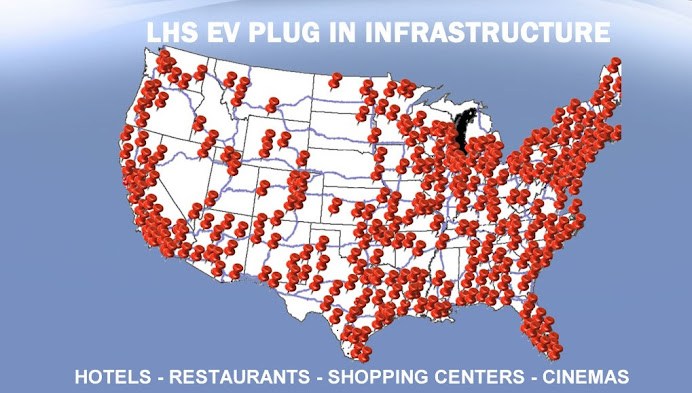 Johnson Controls said today it received a $299 million grant from the U.S. Department of Energy through the stimulus package to build domestic manufacturing for advanced batteries for hybrid and electric vehicles.
Johnson Controls said today it received a $299 million grant from the U.S. Department of Energy through the stimulus package to build domestic manufacturing for advanced batteries for hybrid and electric vehicles.It is the largest funding of 48 advanced battery and electric drive projects that were awarded a total of $2.4 billion from the DOE. The grant accounts for about half of Johnson Control’s total intended investment of $600 million in advanced battery manufacturing capacity and infrastructure development. Today's funding is for Johnson Controls to produce nickel-cobalt-metal battery cells and packs, as well as funding battery separators from partner Entek for hybrid and electric vehicles.
Saft America also received $95.5 million from the DOE today to produce lithium-ion cells, modules, and battery packs for hybrid and electric vehicles. Johnson Controls has established a joint venture with Saft America's parent company, Bagnolet, France's high-tech battery manufacturer Saft. In April, the joint venture Johnson Controls-Saft was awarded $148.5 million in incentives from the state of Michigan to build a manufacturing facility for lithium-ion cells and hybrid battery systems. The Holland, Mich.-based plant, which is converting an existing Johnson Controls facility, is expected to be operating before the end of 2010.
The Michigan facility's customers are to include Ford, with its first plug-in hybrid vehicle slated for 2012, Azure Dynamics, which plans to launch its next generation Balance Hybrid Electric commercial vehicle in 2010, Daimler and BMW. The Michigan funding was one of many for the joint venture. In 2008, Johnson Controls-Saft received an $8.2 million contract for plug-in hybrid electric battery development from the U.S. Advanced Battery Consortium, with funding from the DOE. Through the project, Johnson Controls-Saft said it planned to validate the commercial feasibility of lithium-ion technology for mass market plug-in hybrid electric vehicles. Earlier this year, Johnson Controls-Saft also started production at an automotive lithium-ion cell manufacturing and battery assembly facility in Nersac, France. The facility supplies advanced battery technology for the Mercedes S-class hybrid, already on sale, and the BMW 7 series ActiveHybrid, to be available in early 2010.
Source : Cleantech, august 5th, 2009

Aucun commentaire:
Enregistrer un commentaire